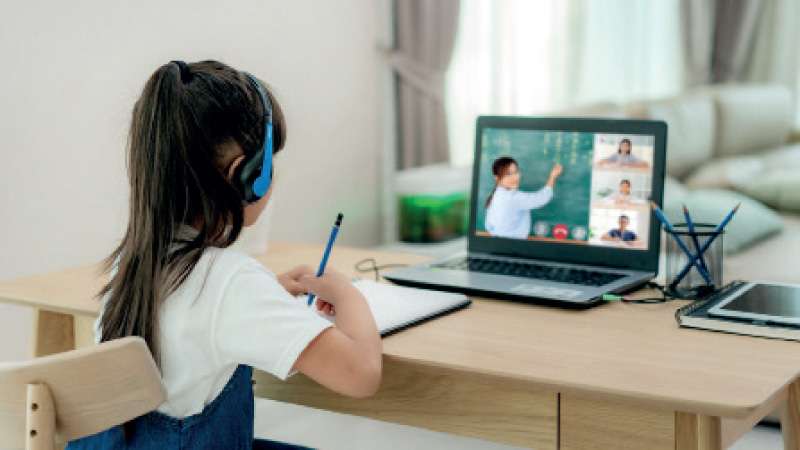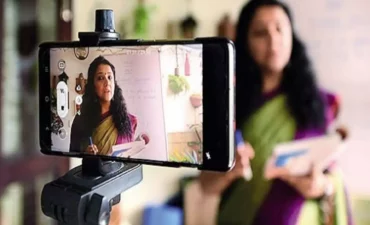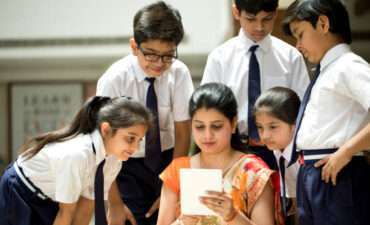Gurukul to schools – A Lookback
India has had an interesting journey on how we have gone about helping our younger generations learn their ways of living. The earliest documented version talks about living with one’s Guru for 24 hours a day. This graduated to the era of learning where most spent their time acquiring knowledge in vernacular languages with English being a separate subject. Private schools that taught everything in English started mushrooming across the country. Fast forward to a year back, learning was about exposure to Infrastructure and facilities. Most schools were measured by their ability to help kids step into the more prestigious campuses not just in India but across the globe.
Learning and our teachers
The education sector is not alone in being affected by the current pandemic. In every industry, there has been ‘Digitalization’ of methods. Schools are being replaced by learning firms; universities are being replaced by the ‘Coursers’ of the world. As we stand today, all of us are intrigued and wonder if our current state is the permanent future and what it can mean.
- One ‘Super Teacher’ can help a million nursery kids instead of a few thousand teachers.
- We could have facial recognition to help check if kids understand
- The quality of education in the metros will be equal to the one in remote villages
- The cost of education can drastically come down with no classrooms and teacher salaries
- Online education enables the teacher and the student to set their own learning pace, and there’s the added flexibility of setting a schedule that fits everyone’s agenda.
- Studying online teaches you vital time management skills, which makes finding a good work-study balance easier. Having a common agenda between the student and teacher can also prompt both parties to accept new responsibilities and have more autonomy.
- Teachers and students are able to join online communities of practice based on their area of interest rather than their geographic location.
As you can see not all of these impacts are negative. There is a fair balance of what can improve and what will deteriorate. Teachers losing jobs can look gloomy in the short term, but as in other industries, we will always find better quality jobs such as designing customized curriculums, personalized feedback sessions, etc.
What is Learning anyways?
But let’s focus on the kids. Will this really be their future? What do they ‘learn’ today and how much of it can be online? It’s important to turn back the clock and reminisce what people in their 30s and 40s learned from school back then. What do we recollect the most from our school days?
- Was it Differential Calculus or was it the paper model that we did with four of our friends?
- Was it the autodidacticism or was it the help we received from our seniors and teachers on how to crack public examinations?
- Was it double entry book keeping or was it about managing an exam despite not preparing well for it.
As nostalgia gushes down on all of us, an important point to note is that learning is not about acquiring knowledge. There are important life skills.
- Value of team work
- Ability to listen well
- Making Connections.
- Taking on Challenges.
- Managing Peer pressure
- Time management.
- Spontaneity in managing tough situations
As we stand today, there are no specific online solutions on the horizon for these important aspects of learning.
‘To Know’ is still important
This is not an attempt to trivialize the curriculum. It is important to understand the basics of science or math. It is important to appreciate the nuances of language and the vastness of our universe. It is difficult to truly be a world-class nation if the youngsters of tomorrow have very little appreciation for the cultures of Japan or Germany. The current wave of digitalization can help us drive a lot more of knowledge with efficiency. Each generation is surpassing the earlier generation in terms of how much they know by the time they are 15. But we cannot reduce learning to aspects like
- How quickly can one solve 3-digit multiplication problems?
- Comprehend difficult Poetry
- Explaining the components of theories.
What really is the future then?
It is about balance. While online learning will continue to be an increasing part of our lives, there are boundaries it can never cross. A fine example will be how we all felt when e-commerce was declared as the future and how it will eliminate shops. But what we find is now an ‘omnichannel experience’ of seamlessly integrating a physical store to the online experience. Apple & Amazon are shining examples of how the virtual shops embrace their cousins – swanky shops in prime locations. We might as well see an ‘Omni channel’ learning experience as the future.
What is omnichannel learning?
- The curriculum will be available online but students continue to meet and understand the subject together.
- Classrooms will be replaced by collaboration rooms where students work together on projects.
- Teachers will become observers. They will not focus on delivering content but rather how is the student absorbing the content
- More kids can have access to the same quality of education and we will be able to use the physical infrastructure with a lot more efficiency.
- Skills will become the focus and not knowledge or the ability to reproduce without comprehension.
- More diverse courses will be available as each school needs.
Will all this be necessary?
Learning always has a strong linkage with what the workforce of the future will need. If we peek into the future of our workforce, we will see
- Genetic engineers working with doctors
- Data scientists working with digital marketers
- Accountants working with multiple teams
- Kids designing and creating app for bigger companies
The common thread here is our ability to come together and work. It can be small groups of 10 or large organizations of 1000s. And for a moment let’s also acknowledge that for a healthy society of responsible citizens we need to work with other people around us. To answer in simple terms, Online Learning is a vital component of our future. But not a standalone solution.



